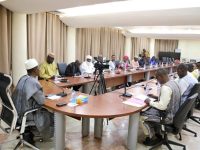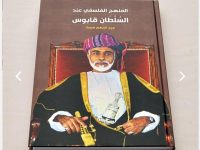Sanremo, February 2024 – The annual Italian music festival has just ended, leaving behind a…

Afghanistan resisting Taliban oppression with art: Somaia Ramish’s poetry
I had the pleasure and honor of having a conversation with Somaia Ramish, one of the most important voices of Afghan poetry as well as rights activist, currently in exile in Netherland, after the dramatic return of the Talibans in August 2021 that forced dozens of artists to leave their country. She too was forced to seek political asylum as an artist and, moreover, voice of Afghan women’s rights, an intolerable combination for the ruling group who has thrown the country back into the most dramatic obscurantism. Somaia Ramish spoke to me about the impact of Taliban extremism on the most fragile and vulnerable part of the population, such as women, children, people with disabilities. Her poetry is deeply connected with social issues and political matters, linked to the distress and violence suffered by Afghan women; they are forced to marry even at a very young age, suffering from extreme poverty, for crimes of honor, for domestic violence.
Member of PEN, International Poetry Association, when she still was in Afghanistan, she wrote a remarkable essay in 2014 “Call me by my name”, mentioned by the New York Times, on the use of eliminating women’s name and the prohibition to mention the name in public. It is a deprivation of identity, a fundamental right for every person.
“LOAD POEMS LIKE GUNS” so begins one of her poems that emphasizes the power of the poetic word that opposes the violence of a world of abuses.
What does it mean writing poetry for an Afghan woman?
In Afghanistan, poetry is an inseparable part of everyday life. It is not just for the elite. Poetry is always a part of the daily life of the people. For example, children go to the mosque from the age of five in Afghanistan, and the Divan of Ghazals by Hafez and Saadi are among the first books they learn. From the age of five, poetry enters their world. Even those who are illiterate have many verses memorized. Mothers whisper poems to their children at bedtime. Men often recite poetry while working in the fields or in their shops… I say this to reach the point that poetry is very important for all people in Afghanistan. Both women poets and women in everyday life hold a special importance and place. In Persian language, Rabia Balkhi from Afghanistan in the 10th century was the first woman poet, and some of her works still exist today. She was not only the first woman poet in Persian but also the first victim of poetry and love, having written her last poems with her own blood as she died. This is meaningful to us. Throughout history, women poets have written with their blood. For women, writing is also a struggle; living in a male-dominated geography! Women throughout history have even written poetry under pseudonyms, expressing their love, emotions, beliefs, hatred, or protests through this medium.
Your poems are deeply related to the situation of your country. How much are you affected by the politics and social diseases of your compatriots?
Poetry and art are created in a political and social context. Therefore, in my opinion, poetry cannot be separated from society and its people. Just as art can take different forms in different life contexts. An artist, while committed to art and creating beauty, can also protest through art and be the voice of people’s demands and protests, enlighten, fight against darkness, inform, and bring about change! I believe that poetry cannot be calm and indifferent in a society where injustice prevails! In this time, when war threatens human lives in the most ruthless and violent forms around the world, poetry can stand beside truth and prevent politics and the media from silencing it. As an Afghan woman whose life has been entangled with migration, war, discrimination, and exile from childhood, how can my poetry be devoid of these sufferings? My poetry mirrors my experiences, feelings, thoughts, imaginations, and even hopes. Poetry for me today is a voice of protest and a reflection of what is happening in my life and the geography to which I belong.
What does it mean being a woman in your country today?
A: A woman is a person who is deprived of all her human rights solely because of her gender. The Taliban have imprisoned women in their homes, and the life of women in Afghanistan today is like living in a mass grave! Believe me, it is very hard for me to talk about the lives of women in Afghanistan today. When I witness their suffering every day. When I see the tears of teenage girls behind the closed gates of schools. When I witness the burial alive of girls in Afghanistan. When I see the blatant violence and discrimination by the Taliban against women. When I see the world’s indifference towards Afghan women and girls… All of these cause my anger and sometimes despair. Women in Afghanistan today are deprived of their most basic rights. The right to education, the right to work, the right to travel, the right to go to recreational places, the right to choose their clothing, the right to engage in cultural, political, and social activities… and a world that has been silent in the face of all these injustices and gender apartheid for three years! The life of women in Afghanistan has made me skeptical about all the defined standards of freedom, equality, and human rights… There are double standards in the world that can easily trample all these values, and it is politics that determines who and where can have freedom and equality. For me, this is really bitter and deadly!
Why is art in general now so denied in Afghanistan despite your tradition?
A: Because today a terrorist and ignorant group has occupied Afghanistan. In the Taliban ideology, art, culture, beauty, and women have no place or meaning. Taliban ideology is derived from very extremist narratives of Islam. On the other hand, these harsh Islamic narratives have merged with a primitive and ignorant view of humanity. A mixture of harsh Islam and ignorance has created the Taliban ideology. Taliban soldiers do not know modern life, human rights values, freedom, and concepts of this kind, and they are completely unaware of them. They have been raised in an environment of anger, violence, ignorance, and teachings of death and killing, taught that beauty, art, culture, history, women, beauty, and joy are forbidden and must be destroyed! That is why we see today that the Taliban have banned all forms of art in Afghanistan, even photos of women, people, or animals, paintings, musical instruments, and art galleries that have been historically significant and valuable. Destroying the historical Buddhas of Bamiyan and closing the painting gallery of Behzad are examples of this regression. The approach of the Taliban has no connection with the culture of the people of Afghanistan, as I mentioned earlier our history is intertwined with culture, poetry, and art. The greatest poets, painters, and writers like Rumi, Kamal al-Din Behzad, Nasir Khusraw… signify the cultivation of art in Afghanistan.
Q: You are living abroad due to the Taliban’s regime now but you’re still struggling for human rights and democracy
What is Baamdaad?
A: Baamdaad – House of Poetry in Exile is a protest movement against censorship and repression of art. We believe that no politics or ideology should take away a person’s right to freedom. Freedom is a natural right that must be preserved in any situation. Freedom of expression, freedom of thought, freedom of creation… all these are values that should not be controlled by tools such as politics or religion. Baamdaad is an artistic effort for the solidarity of poets worldwide against censorship and repression of art. With this movement, we strive to advocate for Afghan poets and artists who are oppressed, tortured, and deprived. So far, dozens of poets from around the world have supported this protest movement and sent their poems against censorship and repression to support Afghan poets. After the ban on poetry in Afghanistan, I issued a call and asked all poets worldwide to protest against the censorship and repression of art in Afghanistan by writing poetry. I then collected these poems and published them in the world poetry anthology “No Prison Can Hold Poetry.” This anthology has been published in French and Japanese, and soon the Italian and Dutch versions will also be released. Our goal is solidarity of poets worldwide against any form of censorship and repression. We also want to be the voice of Afghan poets and artists living in a geography where all forms of art have been banned by the Taliban!
The voice of the Afghan people still continues to resonatethrough its artists, in spite of everything, despite the indifference of the world, although world politics is engaged on other much “hotter” fronts than Afghanistan now. We continue to amplify their voice




